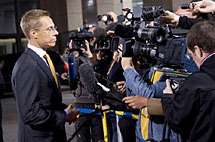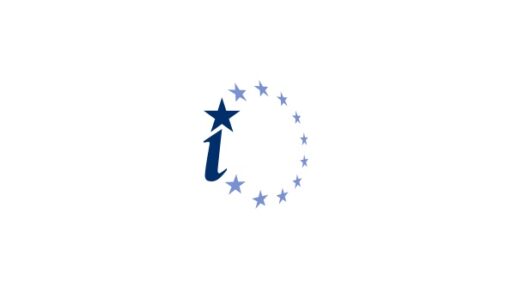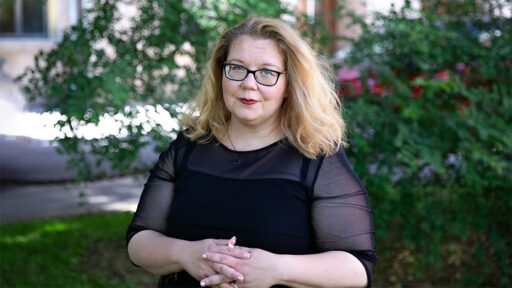Foreign Ministers had a good discussion about Afghanistan
On Tuesday, 15 September, EU Foreign Ministers convened in Brussels had a concrete and diverse discussion about the situation in Afghanistan after the elections. Foreign Minister Alexander Stubb was of the opinion that ”one can be satisfied with the elections from the point of view of security, but not so much from the point of view of democracy”. “But the EU will not make a move until the Independent Elections Commission has completed the recount”.
 Foreign Minister Stubb met media representatives in Brussels on 15 September. Photo: EU Council.
Foreign Minister Stubb met media representatives in Brussels on 15 September. Photo: EU Council.Finland’s own objective would be to make the EU policy concerning Afghanistan more focused, increasing, for instance, investments in the enhancement of the rule of law. “In this respect, Finland is pretty much on the frontline since, even in absolute terms, our contribution to the EUPOL police operation is the third highest, 24 people,” Stubb reminded in a press conference held for Finnish correspondents. Other key topics of discussion among the Foreign Ministers included Iran and Southern Caucasus.
The EU Foreign Ministers are contemplating the situation in Afghanistan under circumstances when the time is not yet right for new solutions. The recount of the votes cast in the presidential elections continues and, therefore, decisions cannot be made before the next Foreign Minister Meeting at the end of October. On the other hand, there are plenty of reasons to discuss the situation anyway. “We need a comprehensive approach, which combines the crisis management troop ISAF, EUPOL, education, development co-operation, and humanitarian assistance,” Foreign Minister Stubb summarised. In his own address to his EU colleagues, the Foreign Minister underlined that there are still some elements missing from the equation, including policemen. Countries much larger than Finland have fewer participants in the police operation in Afghanistan.
Foreign Minister Stubb also referred to the realities on the spot. “I wish that, now, after the election, we could state that the security situation has improved. But the situation is not that simple that we could now withdraw the soldiers and replace them with civilians, since both are needed.” “We must not imagine either that it would be possible to build a welfare state in the Nordic style in Afghanistan. However, we can strive to steer the matters in the direction of establishing the rule of law, and follow the EU values in other respects as well.”
Stubb placed strong emphasis on the work the EU has done for enhancing the status of women in Afghanistan. “The Sharia law must not be passed,” the Foreign Minister stated. Changes have already been made in the draft bill, but Stubb is of the opinion that laws of this kind absolutely cannot be instituted in a state governed by the rule of law.
Before this year is over, the international community will probably convene to ponder the future of Afghanistan in a large conference, for which no specific time or place has been appointed at this point. In addition, the Swedish EU Presidency reminded at the Foreign Minister Meeting that, in Afghanistan, the EU has to respect the country’s own institutions. The election results cannot be dictated from the outside or the development remote controlled from Brussels.
Waiting for a meeting with Iran
Around the dinner table, the Foreign Ministers also had time to discuss Iran. At the moment, they are waiting for the next step, since the next significant negotiation meeting with Iran is scheduled for 1 October. “If Iran still refuses to budge, we have to try UN sanctions. If no common UN sanctions can be imposed, we have to consider EU’s own sanctions,” Foreign Minister Stubb said describing the current positions. According to the Foreign Minister, the pressure against Iran has to be maintained both as concerns the main international policy question, i.e. Iran’s nuclear programme, and the human rights issues.
The Swedish Presidency underscored the need for the EU to speak with one voice in the Iran issue, stand behind the negotiators, and analyse what kind of sanctions against Iran could come into question. Finland supports the analysis made by the Presidency.
Pondering closer association with Southern Caucasus
Another topic on the agenda of the Foreign Ministers was the discussion about EU’s closer association with Southern Caucasus. Closer association with Armenia, Azerbaijan and Georgia could begin on an equal footing on the basis of the Eastern Partnership adopted last spring, naturally, taking account of the country-specific differences and merits.
Foreign Minister Stubb told that Olli Rehn, European Commissioner for Enlargement, had acted as presenter of the matter. “Rehn joked at the meeting that there was no need to get worried even if the person presenting the matter was the commissioner responsible for enlargement. European Commissioner for External Relations Benita Ferrero-Waldner just couldn’t make it to the meeting this time.” In other words, it is a question of long-term contemplation of the matter at the level of principle, not about the launch of EU membership negotiations. Southern Caucasus is a strategically important area for EU, and we should strive to promote the stability in the area, Foreign Minister Stubb pointed out to the Finnish correspondents.
“For instance, energy underlines the importance of Southern Caucasus; we have to secure our supply channels,” Stubb emphasised. According to him, the EU should enhance its positive, soft power in the area. Therefore it would be important to launch, for instance, the preparation of negotiation mandates for Association Agreements and consideration of visa facilitation agreements combined with systematic prevention of crime.
Additional information: Press Counsellor Jussi Seppälä, tel. +32 476 950547


